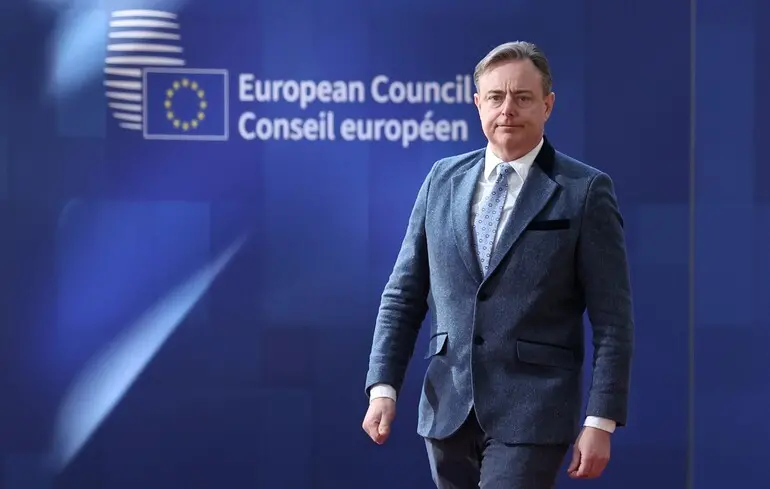Belgium sharply opposes using frozen Russian assets to fund Ukraine without a proper legal framework

In recent days, debates have intensified across the European political landscape regarding the potential utilization of frozen Russian assets to support Ukraine amidst ongoing conflict.
However, the stance taken by the Belgian government stands out as one of the most firm and clear.
Belgian Prime Minister Bart De Wever strongly voiced his opposition to the idea of deploying Central Bank of Russia reserves, including frozen assets, for funding Ukraine, emphasizing that doing so could pose serious security risks for Belgium.
He stated, “Taking Putin’s money and risking Belgium’s stability is a grave mistake.” The politician warned that such decisions could undermine trust among European Union member states, leading to some countries withdrawing their reserves from the eurozone, thus risking economic instability.
This statement came in response to German Chancellor Friedrich Merz’s support for the European Commission’s plan to extend a €140 billion loan to Kyiv.
De Wever clarified that Brussels is not entirely ruling out the possibility of granting Ukraine this credit but intends to study the plan more thoroughly before making any final decision.
The issue of using frozen Russian assets to finance Ukraine remains a highly contentious and complex topic, raising numerous legal and political questions.
Experts highlight that establishing a reparations mechanism using these assets is a complicated legal process that requires careful coordination at the international level, given the unique legal status of these reserves.
Meanwhile, the EU’s proposed innovative mechanism offers Ukraine the opportunity to access needed funding immediately, with Russia’s accountability for the damages deferred to after the war’s end.
This ongoing debate underscores the challenging balance between supporting Kyiv and safeguarding national interests and security.

